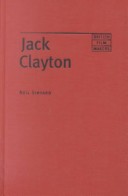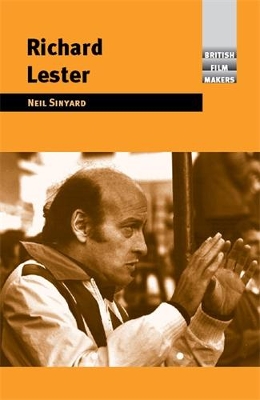British Film-Makers
2 total works
In François Truffaut’s opinion The Innocents was ‘the best English film after Hitchcock goes to America’. Tennessee Williams said of The Great Gatsby: ‘a film whose artistry even surpassed the original novel’. The maker of both films was Jack Clayton, one of the finest English directors of the post-war era and perhaps best remembered for the trail-blazing Room at the Top which brought a new sexual frankness and social realism to the British screen.
This is the first full-length critical study of Clayton's work. The author has been able to consult and quote from the director's own private papers which illuminate Clayton’s creative practices and artistic intentions. In addition to fresh analyses of the individual films, the book contains new material on Clayton's many unrealised projects and valuably includes his previously unpublished short story ‘The Enchantment’ – as poignant and revealing as the films themselves.
This is a personal and fascinating account of the career and achievement of an important, much-loved director that should appeal to students and film enthusiasts.
Richard Lester is of the most significant yet misunderstood directors of the post-war era. Indelibly associated with the Beatles and the ‘swinging Sixties’ because of his direction of A Hard Day’s Night and Help and his joyous sex comedy The Knack, Lester has tended to be categorised as a modish director whose heyday passed when that decade’s optimism slid into disillusionment and violence.
This book offers a critical appreciation and reappraisal of his work, arguing that it had much greater depth and variety than he has been given credit for. His versatility encompasses the Brechtian anti-heroics of How I Won the War; the surreal nuclear comedy of The Bed-Sitting Room and the swashbuckling adventure of The Musketeers films. He has even, in his instinctively iconoclastic manner, cut Superman down to size.
The book should win new admirers for a director with a gift of making movies whose visual wit and imaginative imagery reveal an intelligent and enquiring scepticism about heroes and society. Including comments from Lester himself and illustrations from his own private collection, the book is a must for film scholars and enthusiasts alike.

